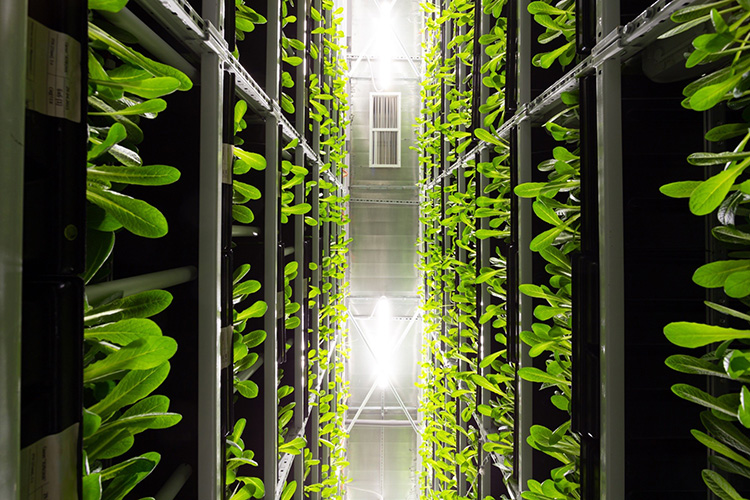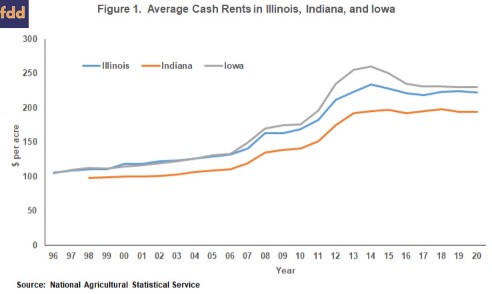Report on the Precarious State of the UK Food System and its Alignment with Sustainable Development Goals
Overview of Food Security Challenges in the UK
The UK’s food system is currently facing significant vulnerabilities amid increasing global volatility. NFU President Tom Bradshaw emphasized the urgency for government ministers to integrate food security within the national strategy to ensure resilience. This call aligns with the government’s manifesto, which explicitly states that “food security is national security,” a stance reiterated by key figures including the former MI5 Director General, Baroness Manningham-Buller, who identified food production as a critical pillar of the UK’s infrastructure.
Findings from the National Preparedness Commission
A recent report by the National Preparedness Commission, composed of crisis experts, highlights the precarious condition of the UK’s food system. The report warns of the system’s susceptibility to shocks and stresses the urgent need for measures to enhance domestic food resilience.
Global Risks and the Imperative for Food System Resilience
Forecasts of Increasing Instability
The World Economic Forum’s Global Risks Report 2025 projects escalating global instability over the next decade, characterized by rising conflicts, economic disruptions, and frequent extreme weather events. These factors threaten food production and supply chains, underscoring the necessity for strategic resilience planning.
Strategic Priority for Food Security
NFU President Tom Bradshaw highlighted recent disruptions in food supply chains, including empty supermarket shelves and rationing of fresh produce due to high domestic production costs and poor harvests abroad. He urged ministers to prioritize food security within the national security framework, framing it as an essential step to safeguard the nation’s future food supply.
Emphasis on Sustainable Development Goals (SDGs)
The issues outlined in the UK’s food system report directly relate to several United Nations Sustainable Development Goals, including:
- SDG 2: Zero Hunger
- Ensuring access to sufficient, safe, and nutritious food for all.
- Strengthening food production systems to withstand shocks.
- SDG 12: Responsible Consumption and Production
- Promoting sustainable agricultural practices.
- Reducing food waste and improving supply chain efficiency.
- SDG 13: Climate Action
- Addressing the impacts of extreme weather on food production.
- Implementing adaptive strategies to mitigate climate risks.
- SDG 16: Peace, Justice, and Strong Institutions
- Enhancing national security through resilient food systems.
- Building institutional capacity to manage crises affecting food supply.
Recommendations for Policy and Action
- Integrate food security as a core component of national security strategies.
- Invest in domestic food production to reduce dependency on volatile international markets.
- Develop infrastructure and policies to improve supply chain resilience against economic and environmental shocks.
- Promote sustainable agricultural practices aligned with SDG targets.
- Engage multi-sectoral stakeholders to coordinate efforts addressing food system vulnerabilities.
Conclusion
The UK’s food system faces significant risks from global instability and environmental challenges. Addressing these issues through a strategic focus on food security is not only vital for national security but also essential to achieving multiple Sustainable Development Goals. Immediate and coordinated action by government and stakeholders is required to build a resilient, sustainable food system that secures the nation’s future.
1. Sustainable Development Goals (SDGs) Addressed or Connected
- SDG 2: Zero Hunger
- The article focuses on food security and the resilience of the UK’s food system, directly relating to ending hunger and ensuring access to safe, nutritious, and sufficient food.
- SDG 13: Climate Action
- Mentions of extreme weather becoming the norm and the need to build resilience against shocks imply climate-related challenges impacting food security.
- SDG 16: Peace, Justice and Strong Institutions
- References to national security and food production as critical infrastructure connect to building resilient institutions and ensuring national stability.
- SDG 12: Responsible Consumption and Production
- Concerns about fragile food supply chains and production costs relate to sustainable production and consumption patterns.
2. Specific Targets Under Those SDGs Identified
- SDG 2: Zero Hunger
- Target 2.1: End hunger and ensure access by all people to safe, nutritious, and sufficient food all year round.
- Target 2.4: Ensure sustainable food production systems and implement resilient agricultural practices.
- SDG 13: Climate Action
- Target 13.1: Strengthen resilience and adaptive capacity to climate-related hazards and natural disasters.
- SDG 16: Peace, Justice and Strong Institutions
- Target 16.6: Develop effective, accountable, and transparent institutions at all levels.
- Target 16.7: Ensure responsive, inclusive, participatory and representative decision-making.
- SDG 12: Responsible Consumption and Production
- Target 12.2: Achieve sustainable management and efficient use of natural resources.
- Target 12.5: Substantially reduce waste generation through prevention, reduction, recycling and reuse.
3. Indicators Mentioned or Implied to Measure Progress
- Food Security Indicators
- Availability of food supply (e.g., supermarket shelf stock levels, rationing of fresh produce).
- Domestic food production capacity and resilience to shocks.
- Climate Resilience Indicators
- Frequency and impact of extreme weather events affecting food production.
- Adaptive capacity of agricultural systems to climate hazards.
- Institutional and Security Indicators
- Inclusion of food security in national security strategies.
- Effectiveness of crisis preparedness and response mechanisms related to food system shocks.
- Supply Chain and Production Indicators
- Cost of food production and its impact on supply chain stability.
- Measures of sustainable production and reduction in food waste.
4. Table of SDGs, Targets, and Indicators
| SDGs | Targets | Indicators |
|---|---|---|
| SDG 2: Zero Hunger |
|
|
| SDG 13: Climate Action |
|
|
| SDG 16: Peace, Justice and Strong Institutions |
|
|
| SDG 12: Responsible Consumption and Production |
|
|
Source: nfuonline.com







